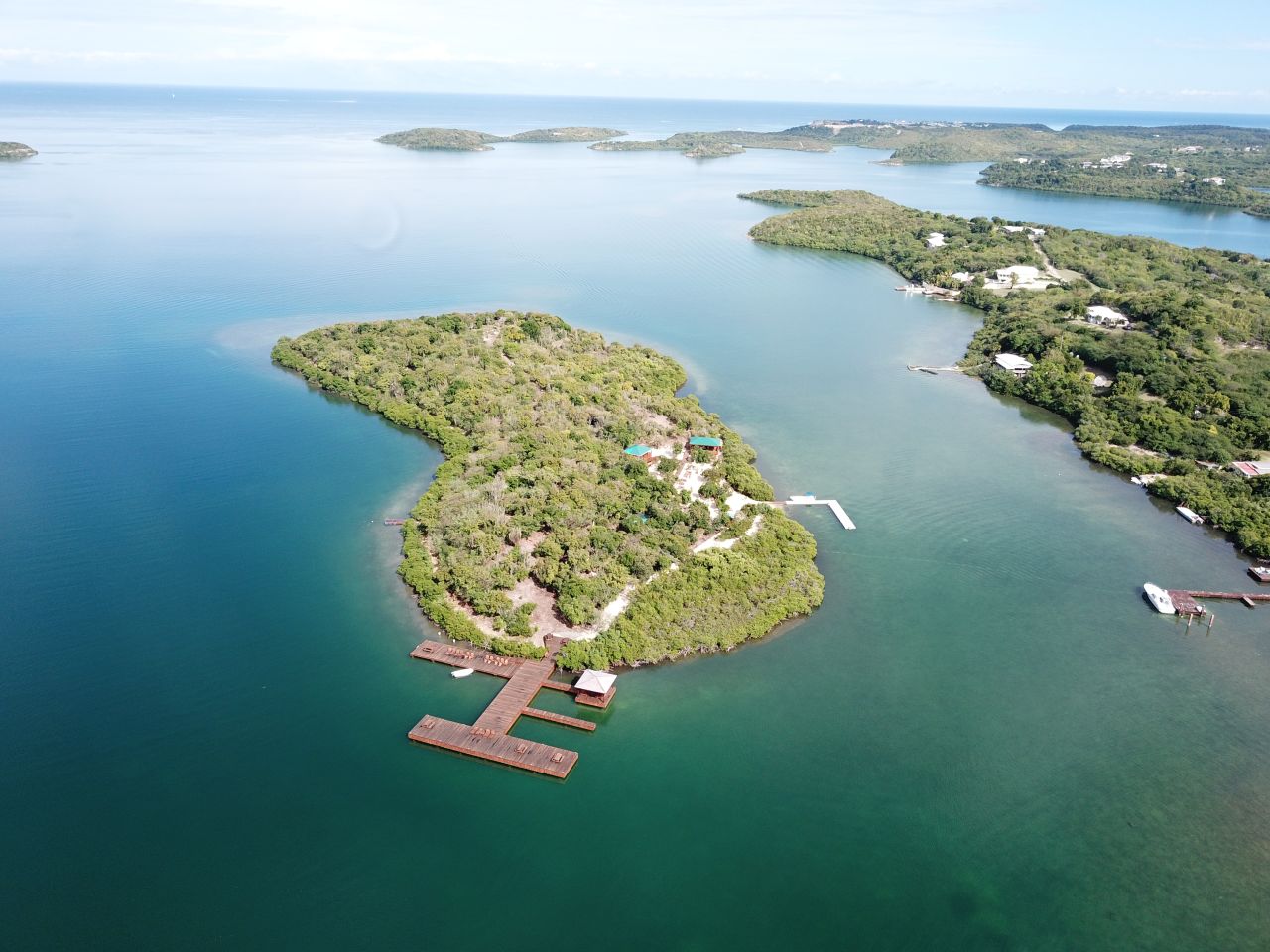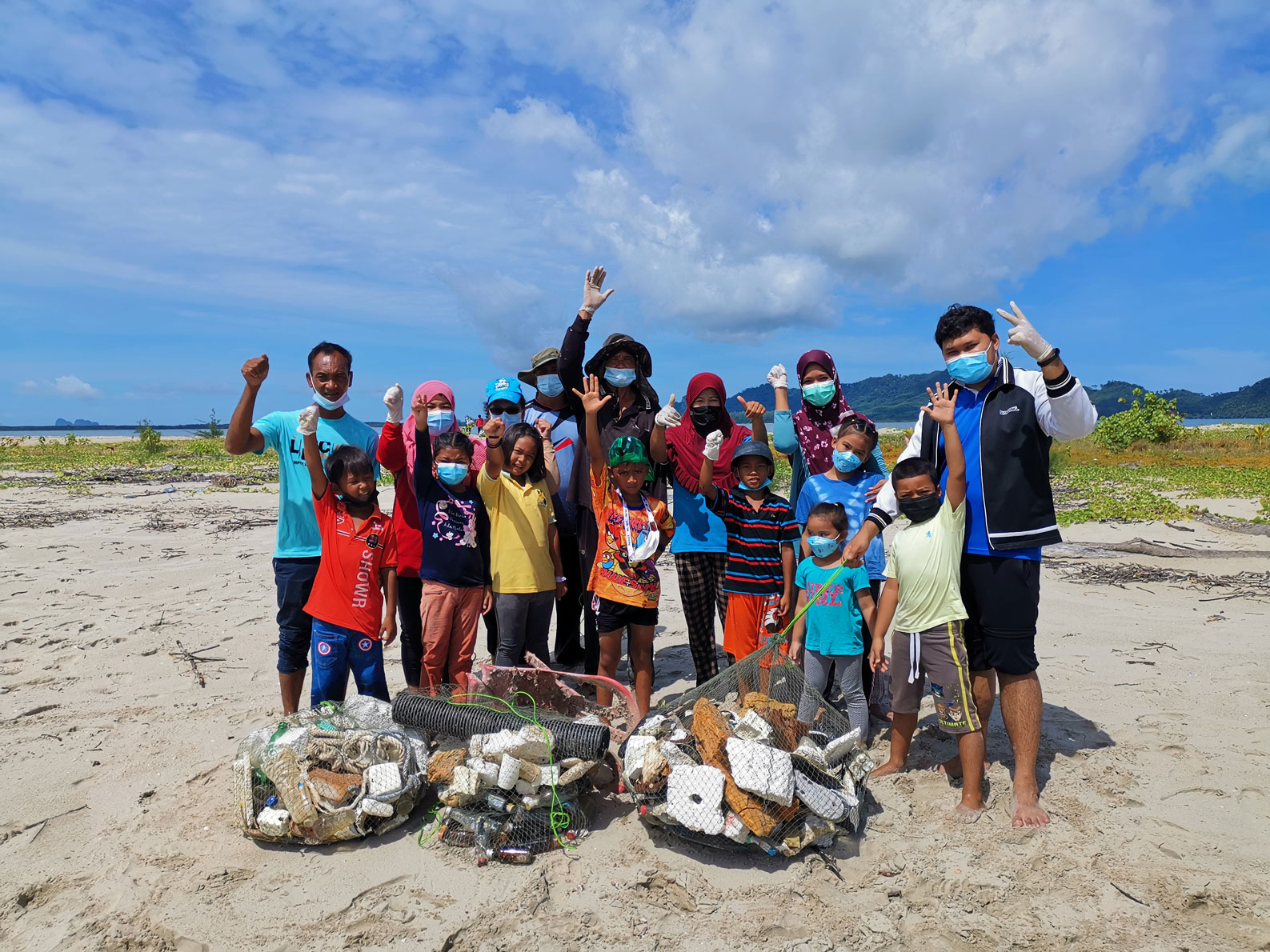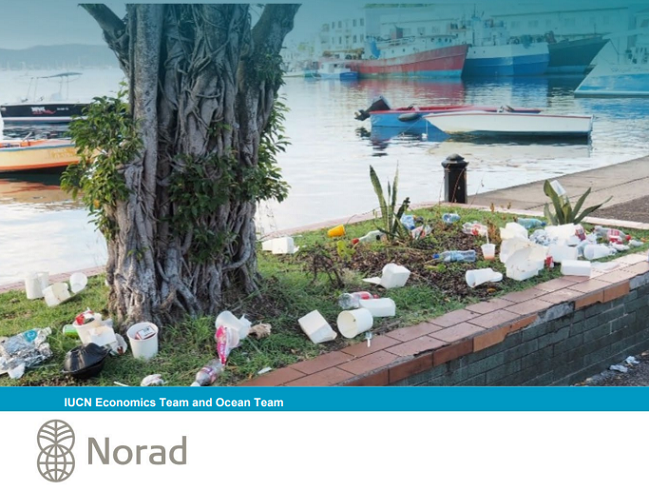A future plastics treaty needs a specific article on biodiversity: IUCN’s proposal
IUCN and the IUCN World Commission on Environmental Law (WCEL) presented at a webinar on 26 March 2024 at the Geneva Environment Network a proposal for a specific article on “Biodiversity Aspects” in the future Plastics Treaty, putting forward IUCN’s key expertise within a new global environmental treaty.
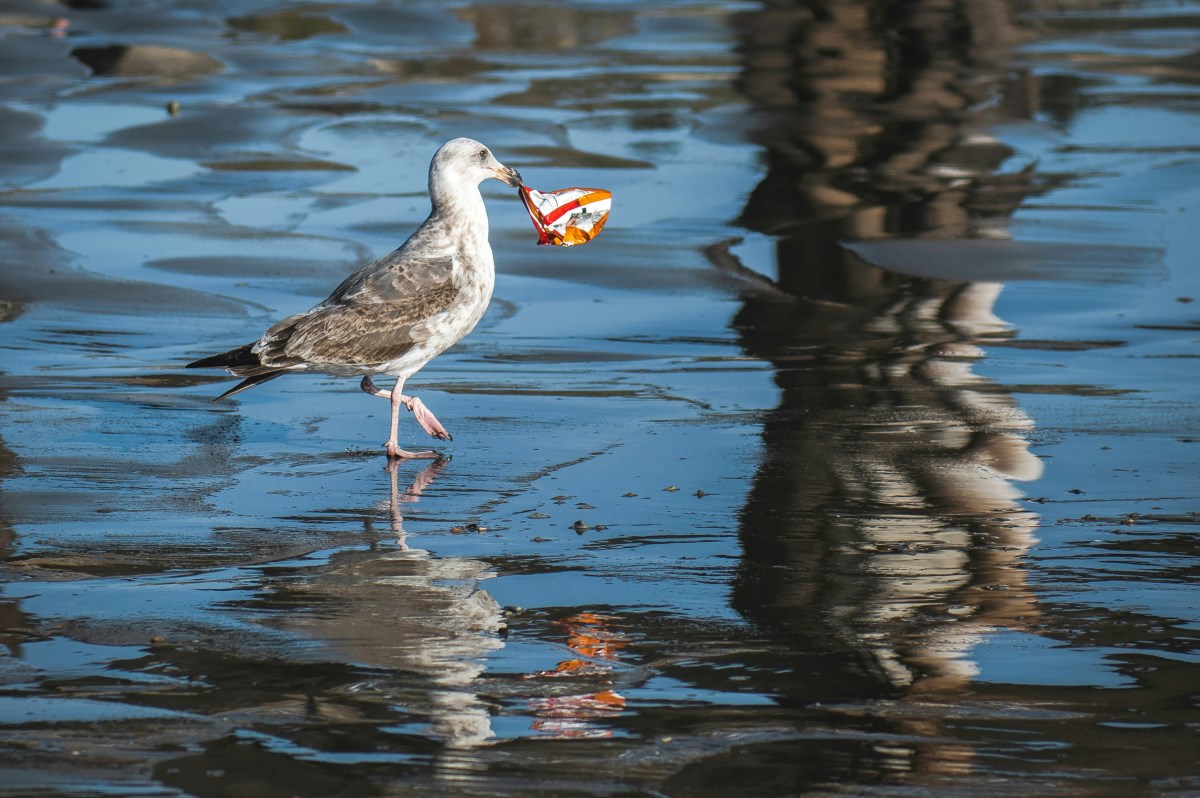
What does a global plastics treaty have to do with biodiversity?
Marine and terrestrial species ingest plastics each year, leading to their deaths. Soils, air, glaciers, rivers, and the ocean are polluted with micro- and macro-plastics. Plastic pollution touches every ecosystem on the planet, contributes to climate change, and presents humanity with a challenge that can only be met with concerted effort towards an effective global plastics treaty.
Plastic pollution is a key driver of biodiversity loss and the degradation of ecosystems. Most of the Sustainable Development Goals (SDGs) are affected by plastic pollution in some manner. With the adoption of the Kunming-Montreal Global Biodiversity Framework (GBF), biodiversity has come to play a prominent role in international law and policy, including in multilateral environmental agreements (MEAs) as well as in other areas such as trade.
A focus on the connections between plastic pollution, biodiversity loss, and the degradation of ecosystems at global, regional, and national levels is important when directing efforts toward effective solutions to the triple planetary crisis of climate change, pollution, and biodiversity loss.
Two IUCN Resolutions from the Marseille World Conservation Congress, adopted in 2021 (7.019 - Stopping the global plastic pollution crisis in marine environments by 2030; 7.069 - Eliminate plastic pollution in protected areas, with priority action on single-use plastic products) require action on plastic pollution from IUCN and our Members. Those resolutions and IUCN’s decade-plus experience working on plastic pollution underline the strong connections of plastic production and use with nature degradation, biodiversity loss, and climate change. People depend on a healthy environment including biodiverse ecosystems. Healthy, clean ecosystems are fundamental for strong economies, especially if we wish to move towards a circular economy.
Therefore, IUCN developed a brief elaborating on a proposal of a specific article on “Biodiversity aspects” in Part IV. 8ter, following the Part IV. 8bis of the content of the text of the Revised Zero Draft, which currently addresses “Health aspects.”
The proposed article: Part IV, 8ter of the Revised Zero Draft
8ter Biodiversity aspects
1. Recognising the critical intersections between plastic pollution, circular economy solutions and innovations across all phases of the plastic lifecycle and impacts on biodiversity at the international, regional, national and local levels, Parties shall:
a. Promote the development and implementation of strategies and programmes to identify and protect biodiversity, particularly species, including migratory species, ecosystems, terrestrial resources, and marine resources, from the short-, medium- and long-term impacts of plastic pollution across the plastics lifecycle. These measures shall include strategies and programmes relating to the impacts of and risks posed by legacy plastics to biodiversity, particularly species, including migratory species, ecosystems, terrestrial resources, and marine resources;
b. Promote the development and implementation of science-based educational and preventive programmes on the intersections between plastic pollution and circular economy solutions, and innovations across all phases of the plastic lifecycle and impacts on biodiversity;
c. Facilitate the incorporation of international, regional and national laws, policies and regulations addressing biodiversity in developing and implementing laws, policies, and regulations on plastic pollution, on circular economy solutions, on innovations across all phases of the plastic lifecycle, and in implementing this instrument;
d. Facilitate the incorporation of laws, policies, and regulations on plastic pollution, circular economy solutions and innovations across all phases of the plastic lifecycle, and implementing this instrument into laws, policies, and regulations relating to biodiversity; and
e. Ensure that biodiversity impact and assessment are included throughout the national plan communicated pursuant to [Part IV.1] and national reports communicated pursuant to [Part IV.3].
2. The governing body, in considering biodiversity and environment issues or activities, shall:
a. Consult and collaborate with the governing bodies of relevant international and regional treaty regimes, including the Convention on Biological Diversity;
b. Promote cooperation and exchange of information with the intergovernmental organisations, and other relevant stakeholders as appropriate; and
c. Take into account the commitments of Parties under the Kunming-Montreal Global Biodiversity Framework and related policies, standards, and guidelines.
The inclusion of this dedicated article text on biodiversity in a future Plastics Treaty would:
- Facilitate the coordination of obligations under existing Multilateral Environmental Agreements (MEAs) to reflect the trend of incorporating biodiversity and the alignment with the Global Biodiversity Framework (GBF) Targets.
- Ensure that the legal and scientific connections between plastic pollution, circular economy, and innovations across all phases of the plastic lifecycle and the protection of biodiversity are rooted in international law and in the national laws that implement the respective commitments. This would advance the use of nature-positive measures, provide a catalyst for innovation in plastics, guide multi- stakeholder collaboration for midstream solutions (reduce, reuse, refill, and repair of plastics and products that contain plastics) and demonstrate how to close the loop for circularity and protect nature and people depending on such solutions.
- Advance the interlinkages between plastic pollution and biodiversity in the context of international trade law. This is an area in which the WTO has become increasing active through the Plastic Pollution Dialogue, and this would connect with the shift to include environmental and biodiversity protections in free trade agreements and regional trade agreements and guide discussions surrounding safe and environmentally sound alternatives and substitutes for plastics, based on life-cycle analysis and biodiversity assessments.
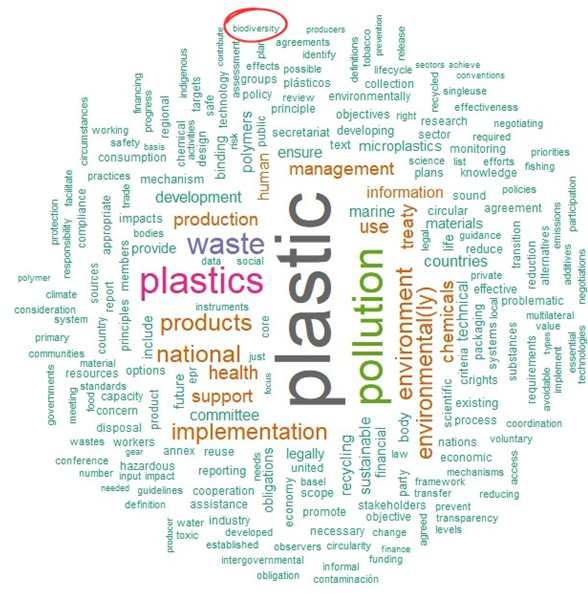 Photo: IUCN
Photo: IUCN
The IUCN and WCEL proposal of a dedicated article would guarantee that the text of the future Plastics Treaty reflects commitments of States to the GBF and biodiversity principles that cut across legal regimes and generate areas of legal, regulatory, and science-based convergence. It would place policy, science and knowledge of stakeholders in a position to assist in understanding the ways in which the future Plastics Treaty can be used to facilitate advancement of biodiversity protections and reductions in biodiversity loss.
The inclusion of a dedicated article on biodiversity in a future Plastics Treaty would thus serve to address many of the core harms caused by plastic pollution in the context of nature, as well as in terms of human health and climate change, and help to shape circular economy solutions and trade that benefits nature and people.
____________________________
Further information
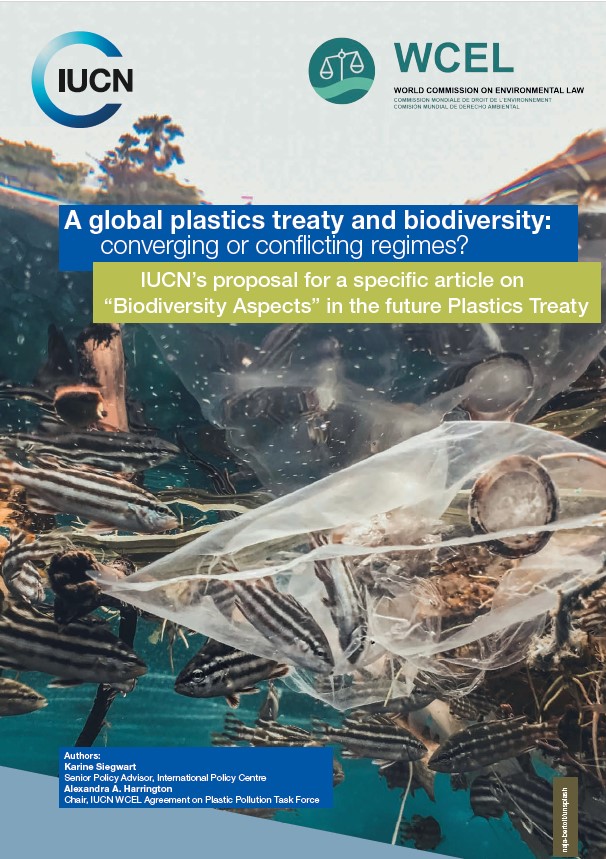 Photo: IUCN
Photo: IUCN
The IUCN Brief is posted here in English, and in Spanish, French, and Portuguese.
- Find the slides of the event here.
- Watch the Geneva Environment Network 26 March 2024 recorded webinar “Biodiversity and the Global Plastics Treaty: IUCN’s Proposal for a Specific Article on “Biodiversity Aspects” in the Future Treaty” video here.
- Please see all of IUCN’s work toward the global plastics treaty here.
- Geneva Environment Network Beat Plastic Pollution Dialogues here.
Contacts
Karine Siegwart, Senior Policy Advisor, IUCN International Policy Centre: karine.siegwart@iucn.org
Alexandra R Harrington, Chair, IUCN WCEL Agreement on Plastic Pollution Task Force: arharrington@gmail.com
Lynn Sorrentino, Programme Officer, Ocean, IUCN Centre for Conservation Action: lynn.sorrentino@iucn.org
